Who art in… the Earth
Hallowed be Thy Name
Thy kingdoms come
Thy phylums are done
And all because of one fallen species under the heavens
|
Our Mother Earth
Who art in… the Earth Hallowed be Thy Name Thy kingdoms come Thy phylums are done And all because of one fallen species under the heavens
0 Comments
 A statue honouring Norman Borlaug was unveiled in DC earlier this week on what would have been the celebrated biologist's 100th birthday. Borlaug's work developing and promoting high-yield crop varieties is credited with averting the mass famines that were predicted in the 1960s and saving as many as a billion people in the developing world from starving to death. Yes, that's "billion" with a "b." In 1970, he was awarded the Nobel Peace Prize for his history-altering humanitarian efforts.  Which of the two political parties in the United States is most to blame for the gutting of American inner cities and the persistence of poverty in the land? I think a good case can be made that they are just about equally responsible. Specifically, a fair amount of guilt has to be shared by two of the worst US presidents of the 20th century: Democrat Lyndon B. Johnson and Republican Richard M. Nixon—the former for his War on Poverty (1964) and the latter for his War on (Some) Drugs (1971). 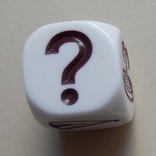 A study by a team of NASA-funded researchers has been getting a lot of play in recent days. Headlines scream about the "irreversible collapse" of civilization if we don't smarten up. In order to stave off disaster, the study says, we need to a) reduce economic inequality, and b) reduce resource consumption, both by using less and by reducing population growth. But a closer look suggests that reports of humanity's future demise may have been greatly exaggerated. 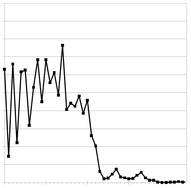 There is absolutely no question in my mind that those who refuse to vaccinate their children against diseases like measles and whooping cough love their children just as much as those who do vaccinate. Pretty big of me, eh? But seriously, to a first approximation, parents love their kids, end of story. If they refuse to inoculate them, it's because they doubt the effectiveness and/or safety of vaccines. But while such parents may see themselves as skeptics, they are in fact too credulous by half. 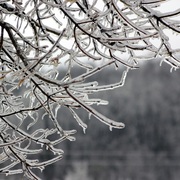 And so it came to pass that a great blanket of uncertainty settled upon the land like a late winter snowfall. The studious wondered if they would be forbidden from pursuing their post-secondary educations in English. Those with certain religious beliefs foresaw a future in which they would be effectively excluded from labouring in the public sector. The entrepreneurial of spirit pondered the possibility that they might be forced to operate their small businesses in French, regardless of any felt need to do so. 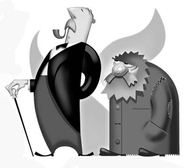 Are the have-nots motivated by envy of the haves, or do they just want their fair share? Conversely, are the well-to-do jealously guarding their unjustified privileges from those that ain't got, or do they just want to keep their fair share? In my latest Québécois Libre article, "The Politics of Envy and Jealousy," I explore some of the things I think we need to consider before attempting to provide an answer to such questions. 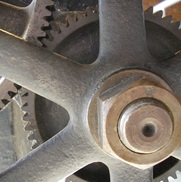 I've been reading David Friedman's Future Imperfect: Technology and Freedom in an Uncertain World in anticipation of his talk here in Montreal tomorrow, and it's got me thinking about the power of reputation. In a chapter called "Contracts in Cyberspace," the law professor points out that suing someone for shafting you in an online deal is even more of a nuisance than doing so in the physical world, since you may very well live in completely different jurisdictions. Why, then, don't more deals go sour on the Internet? 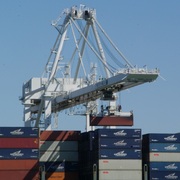 Ford (the company, not the mayor) is upset about the new free trade pact Canadian officials have just concluded with their South Korean counterparts. Among many other things, the deal will eliminate the 6.1% tariff on vehicles imported into Canada from companies like Kia and Hyundai, as well as the 8% tariff on vehicles imported into South Korea from Canada. If that sounds to you like a win for people in both countries, then you're obviously not the president and CEO of Ford of Canada. 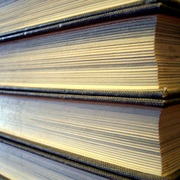 When a book has a lot to offer—meaty ideas, well-crafted language, a plot that sings, characters that move me—I want to take my time with it. I want to savour it and make it last. On the other hand, there are some books that I want to have read, but that I'm not really looking forward to reading. Also, there are just a lot of books out there, and only so many hours to devote to reading in a given day, year, or lifetime. What if I could savour the best and speed through the rest? |
Who Writes ThisBradley Doucet is a Montreal writer and the English Editor of Le Québécois Libre. More of This
June 2016
Even More of ThisThe Limits of Power: A review of Malcolm Gladwell's David and Goliath
Math Education Should Be Set Free Santa on Trial What Does Greenpeace Have Against Golden Rice? Dear Sugar Man: Does a Nation Really Need a Charter of Values? To Dream a Possible Dream: MLK’s Famous Speech, 50 Years Later The Cost of Regulation: Why It's Worth Thinking About Is Government a Necessary Evil? A Review of Michael Huemer's The Problem of Political Authority The Planned Chaos of New Orleans, LA The Unplanned Order of Houston, TX Dynamists vs. Stasists: Virginia Postrel's The Future and Its Enemies, 15 Years Later |